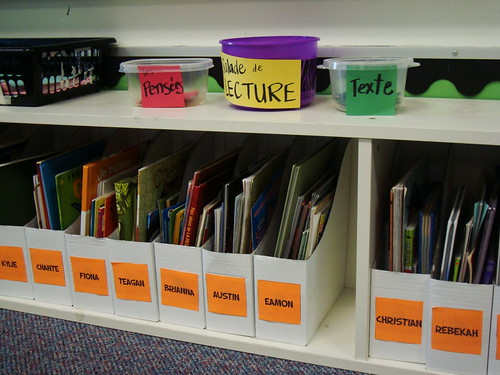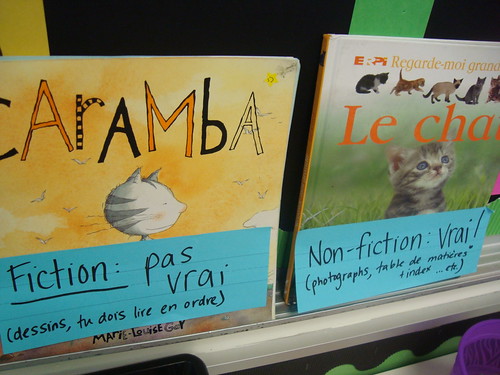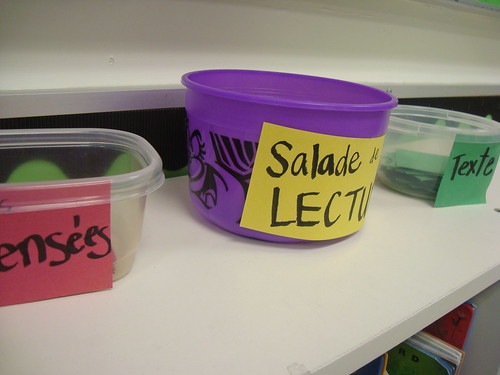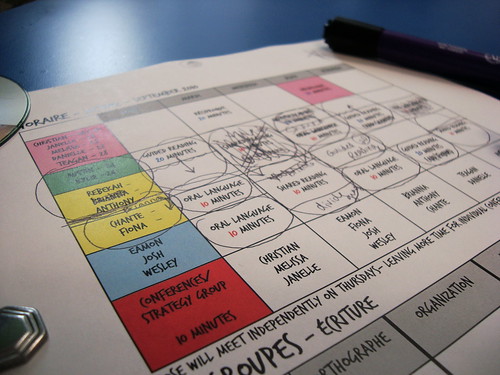I am a self-proclaimed “obsessive self-PD’er”. I spend way to many hours learning new things about how to improve my teaching. This may at first seem like a marvellous thing – but in fact, I go a little bit crazy.
This weekend (besides writing progress reports, planning my math week – including creating my weekly SMARTnotebook lessons and open-ended tasks, marking writing and reader’s notebooks, gathering evidence for an IEP, help plan a parent literacy info night, ….) I have decided to research Poetry Workshops.
I have found a number of good blogs with poetry ideas (like this one and this one). I would like to teach them free verse/open prose because I think they’ll be successful, but myself as a student always loved the challenge of following the formula for different types of poems (ie. cinquain, haiku, acrostic, concrete).
My biggest challenge (as it is with all of my teaching) is that there are wonderful, wonderful mentor texts for poetry and tonnes of websites with great sample poems … in ENGLISH. I have a couple of French poetry books at school, and I have found some basic (and sometimes lame) French poetry sites and I can copy some song lyrics from my CDs, but it doesn’t compare with the multitude of amazing resources en anglais. I sometimes wish I taught in English for the ridiculous amount of literature there is to use with kids. It would save me a lot of time. You can search for books based on your teaching goal for the day, you can get them from the book room or the school library or the public library and even from a real bookstore (Southern Ontario has a pitiful amount of French books in their bookstores – if any! I either have to order online or drive a few hours). If you wanted to teach a mini-lesson on visualizing or good sentence fluency or inferring, you can refer to a list or a website for a multitude of titles to choose from. In French, I have to read each book I have to see if it *might work for that lesson. <end rant> So…. to TRANSLATE SOME POEMS I MUST GO.











